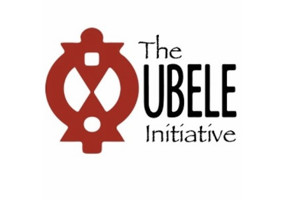When the Black Lives Matters movement was leading news bulletins last summer, I came under a lot of pressure from my team to speak out and express our support for racial justice. But I wasn’t comfortable doing so – not because the issue wasn’t of utmost importance, but because I didn’t feel that we had done enough yet as an organisation to address racial inequality, and indeed other forms of injustice. We had taken some steps but there was a great deal more to do.
Earlier in 2020, we had teamed up with Locality, Co-Operatives UK and the Plunkett Foundation to commission ChangeOut to conduct a review of our organisation’s performance supporting equality, diversity and inclusion. While these conversations were ongoing we read about the shooting of Breonna Taylor in March. By May, when the news came through about the murder of George Floyd, that review had only just begun. So, I insisted that we waited for the results before speaking out.
Now, eight months on and as we mark Race Equality Week, this at times difficult and emotional review process has allowed us a moment of reflection to ensure that we act with intention and commitment to diversity, equity and inclusion as we enter a new phase.
As a funder with charitable objectives working to support diverse communities, it’s often easy to assume our social purpose means we are automatically delivering in this area. It is easy, in our sector, to speak from a place of unexamined privilege which is exactly what Black Lives Matter has been so good at challenging.
Recognising we can do more
Since we were set up, Power to Change has concentrated on tackling disadvantage. Over two thirds of our funding has consistently gone to the most disadvantaged 30% of the country. But we have been challenged by more progressive voices such as Yvonne Field at the Ubele Initiative and Sado Jirde at Black South West Network to recognise that we can do much more to confront and overcome all forms of injustice in areas such as race, disability, age and others. We need to couple a focus on poverty with efforts to overcome these other barriers that prevent people and places from thriving.
The findings of the review are, in many ways, encouraging. But it’s important that we do not shy away from our failings too – if we see and respond to them, we will do a better job. For us, perhaps most noticeably, at leadership and board level we lack diversity both in terms of race and disability. Being a brown CEO is a step forward but is not enough. One person, however senior, is unlikely to make the impact we need - we need an organisation-wide commitment to being more diverse and inclusive, to reflecting and representing better the communities we support.
As a sector we have a fantastic opportunity to do more so we can reach new and diverse communities and make a real impact. Early in the course of the pandemic we were proud to work with The National Lottery Community Fund to distribute £9.5m in funds to community organisations in financial difficulty. We knew that Covid was having disproportionate impact on minority ethnic communities, so we ensured the fund was weighted towards organisations led by or supporting these communities and brought the Ubele Initiative into the consortium alongside Locality and the Social investment Business to ensure we designed the entire programme appropriately. Almost 70% of those who received a grant were from organisations led by minority ethnic groups and 86% were from organisations supporting these communities. We’re proud of these results, and our new strategy builds on this experience with a clear commitment to reducing barriers created by racism, ableism, ageism and other forms of prejudice.
It’s a good start but there is a long way to go. This is a fantastically diverse country with no one community is the same as another. Our communities are grounded in the real needs and concerns of local people. Examining ourselves and looking inwards has allowed us at Power to Change to identify where and who we want to be as a funder and make a commitment to diversity, equity and inclusion that will shape the work we do going forward. As civil society, it is our job to help these communities flourish, and we can only do that by placing a focus on diversity, equity and inclusion in everything we do.
Vidhya Alakeson is chief executive of Power to Change
Related articles












